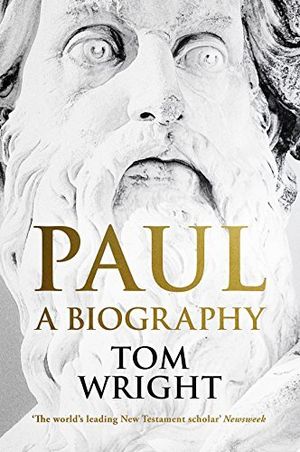This is the latest book from retired Anglican bishop, N. T. Wright. It is geared towards a popular rather than academic audience.
There is much to commend. An overview of Paul’s life and thought is provided, synthesising Acts and the Pauline letters. Extra-biblical material is also utilised to enhance our understanding. This endeavour to summarise Paul’s writings, putting each letter into its context, is enormously valuable.
There are many insightful nuggets. Remarks on the idea of ‘zeal’ in the Jewish setting of Paul’s childhood provide a useful sidelight on the apostle. An argument that Paul’s visit to Arabia (mentioned in Galatians) was likely a trip to Sinai carries plenty of theological weight. Reading Romans in the light of its sixteenth chapter (where Paul sends greetings to many small groups) is essential to grasp Paul’s purpose in writing to Rome.
Some of Wright’s metaphors are striking. As ‘daytime’ people living in a world of darkness, Christians live with ‘theological jetlag’. Unusually and commendably for a modern academic, Wright thinks that the whole Pauline corpus is actually Pauline in authorship.
There is, however, much to censure. Wright’s prose is inflated. He says, ‘This is what really made Paul tick’, or some variant thereof, often enough to be irritating. The book is also rather lengthy, and Wright sets up straw men rather too frequently. How many Christians use the term ‘conversion’ to mean changing religion, rather than simply coming to faith in Christ? How many really think Christianity is all about going to heaven when you die as opposed to the resurrection of the body and the new heavens and new earth? At times, it seems that he is writing to correct a caricature of his former self.
Most seriously, there are points where Wright either cannot think clearly or cannot express his thought. He is confused and confusing at precisely those points where there has been a great deal of controversy and where informed readers will be hoping for pinpoint clarity. While this book is not an attempt to rehash the New Perspective on Paul (NPP) debates, Wright’s version of the NPP inevitably comes through by putting a finger on what he thinks is next to impossible.
At different points, he describes faith as, ‘the thing that showed whether somebody was really part of this new community’ (p.91), ‘confessing that Jesus is Lord and believing that God raised him from the dead’ (p.161) and ‘Jesus-shaped loyalty’ (p.148). These are not the same thing.
In a single passage (p.328-9), faith is ‘the badge of membership in Abraham’s family’, which is to say a token worn by those who have already become group-members. It is something by which someone ‘reaches out to grasp the promise’, which is to say an active mechanism by which someone becomes and remains a group member.
While this may be ‘playing the man and not the ball’, I suspect that the muddle stems from Wright’s position in the Anglican Church. He finds it necessary to count as Christians plenty of folk who would not be received into membership of healthy nonconformist evangelical churches; he is reluctant to define ‘faith’ in a way that would exclude too many members of his church and its hierarchy.
Overall, a reader seeking a better grasp of the unfolding of the history of the early churches, and of Paul’s letters to them and to those involved with them, would find clearer thinking and sharper prose in F. F. Bruce’s Apostle of the Free Spirit.
James Goodman
Stockport



